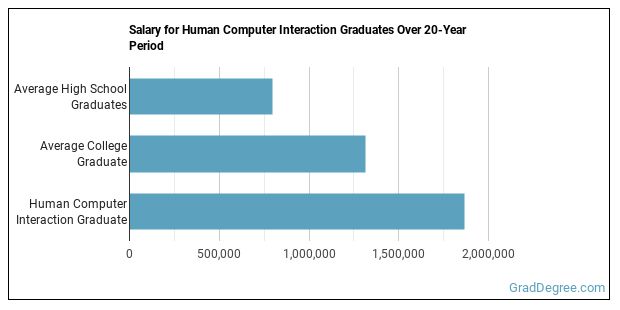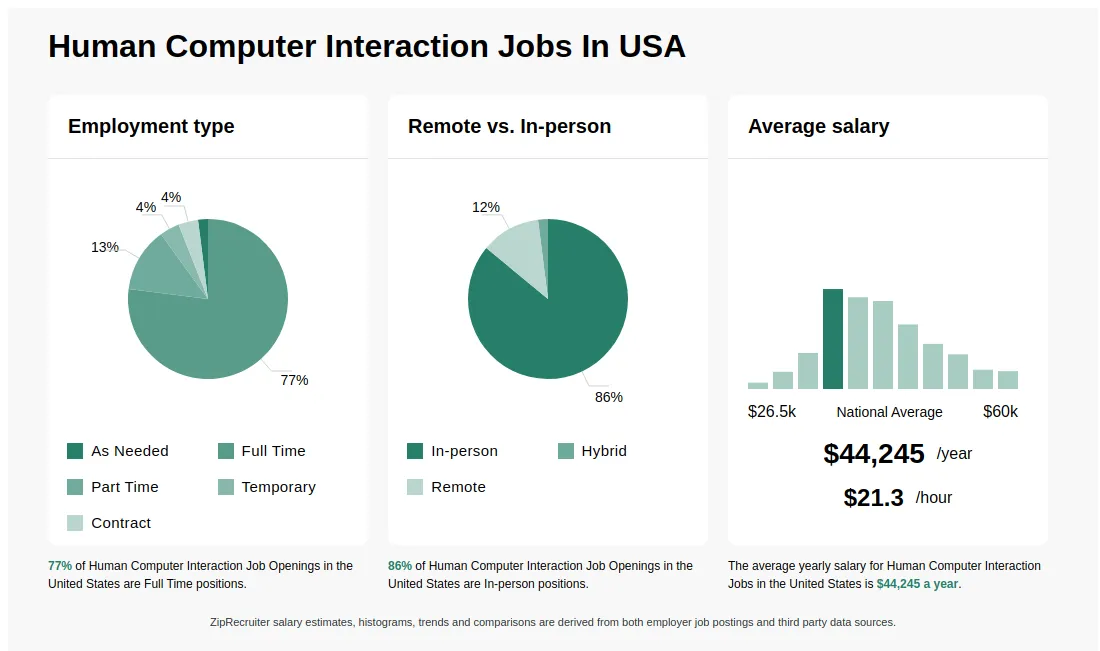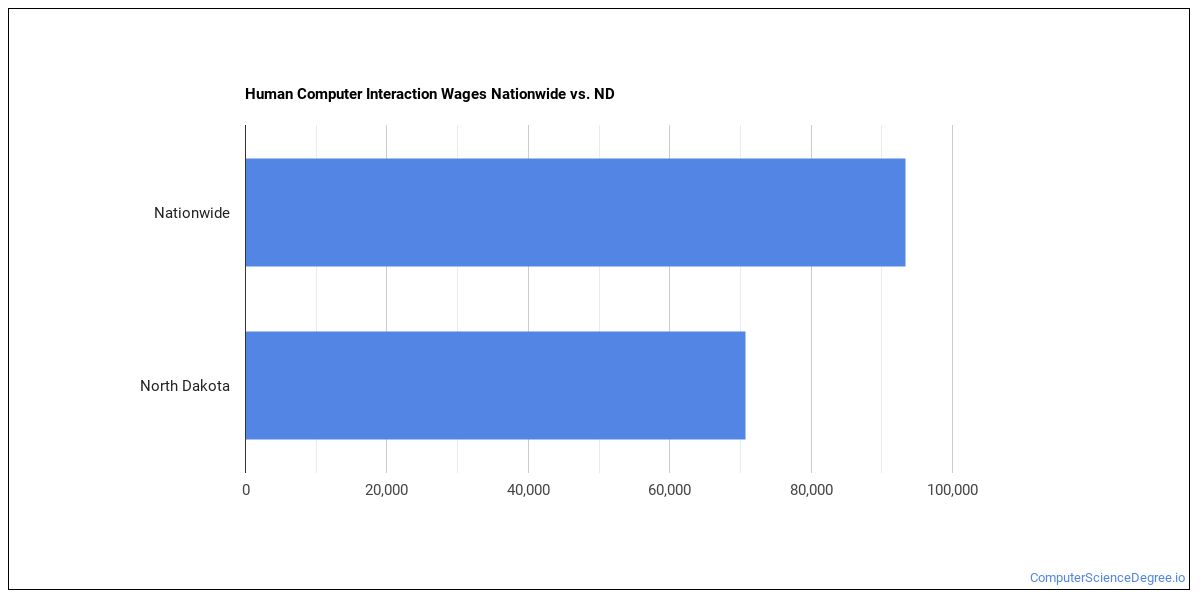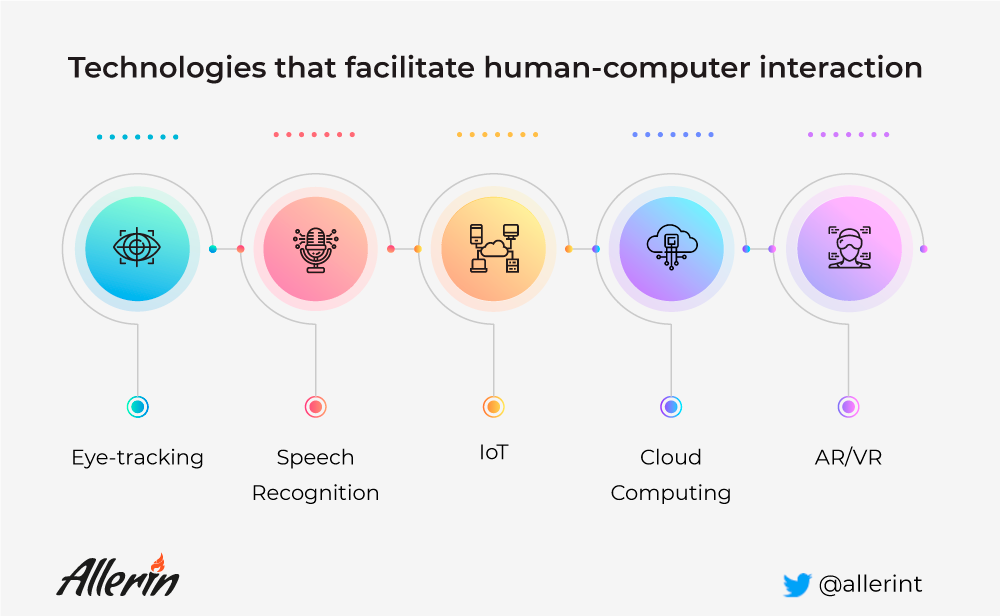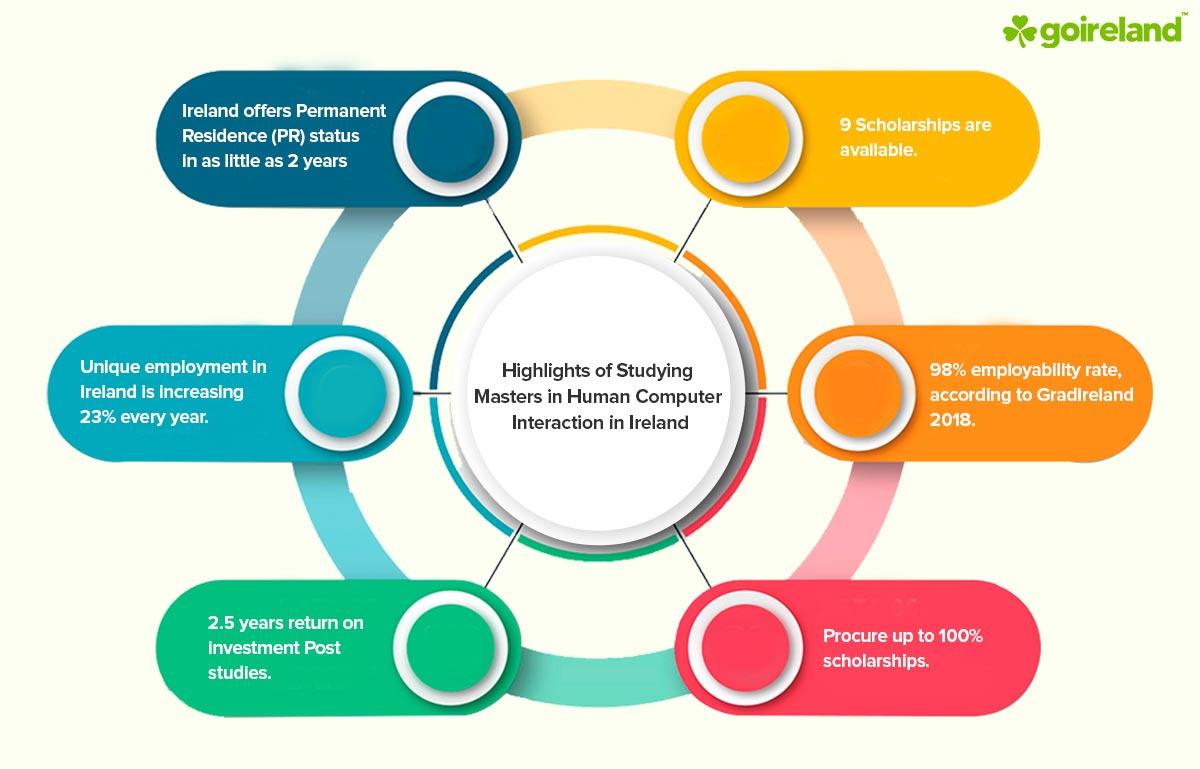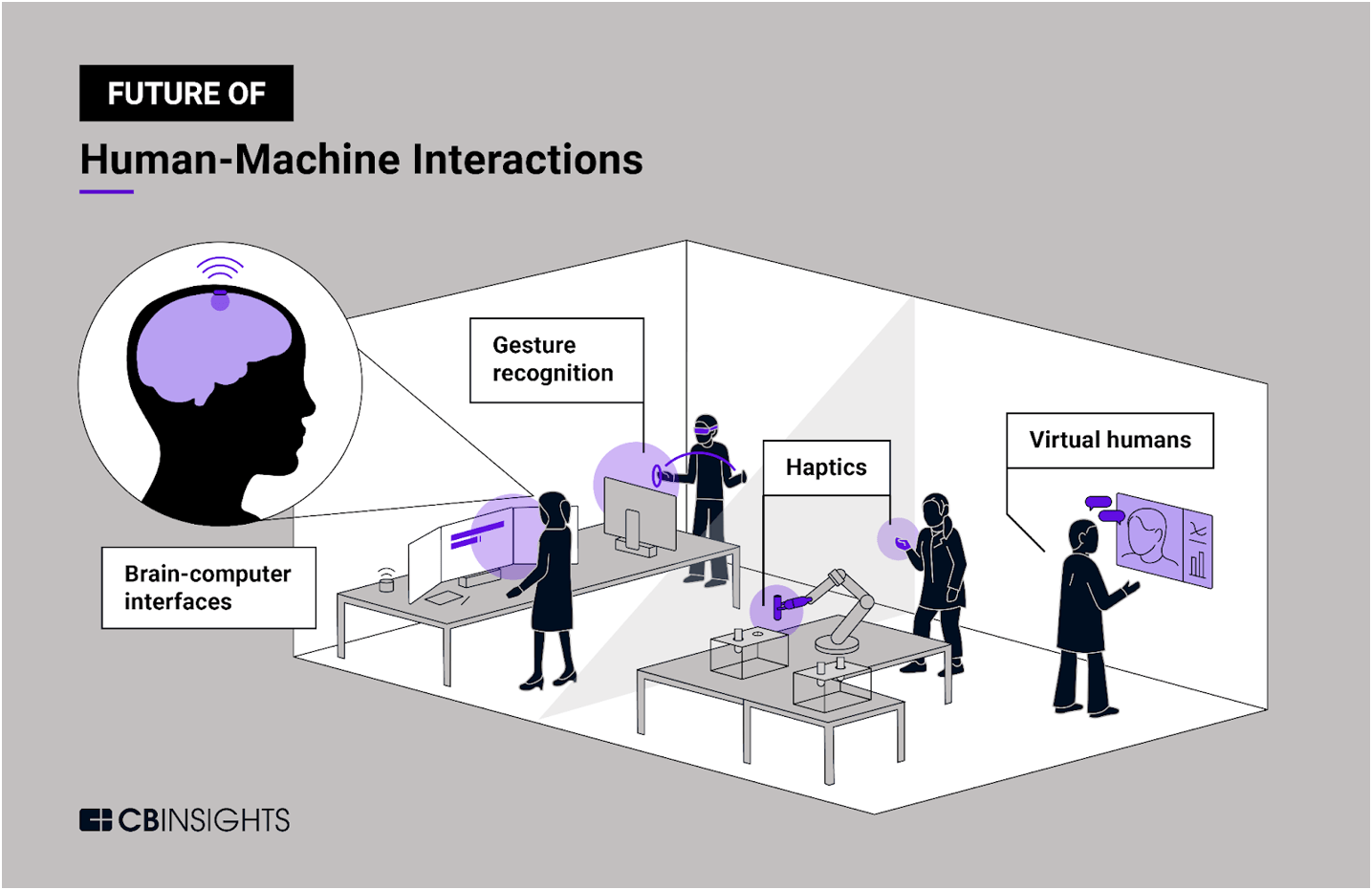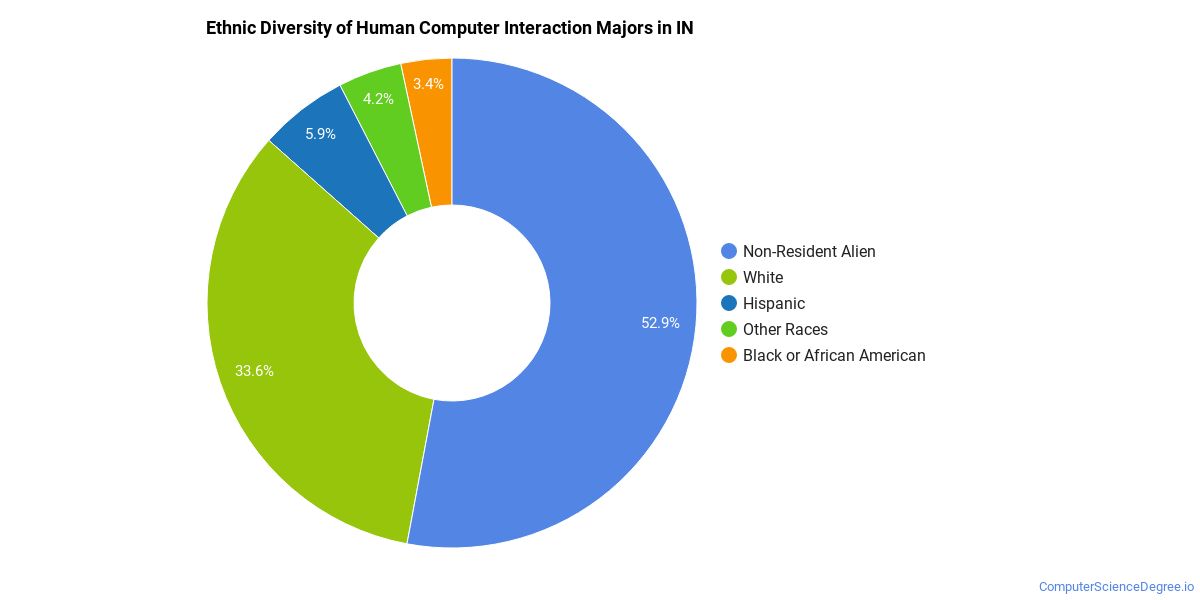Human Computer Interaction Jobs Salary
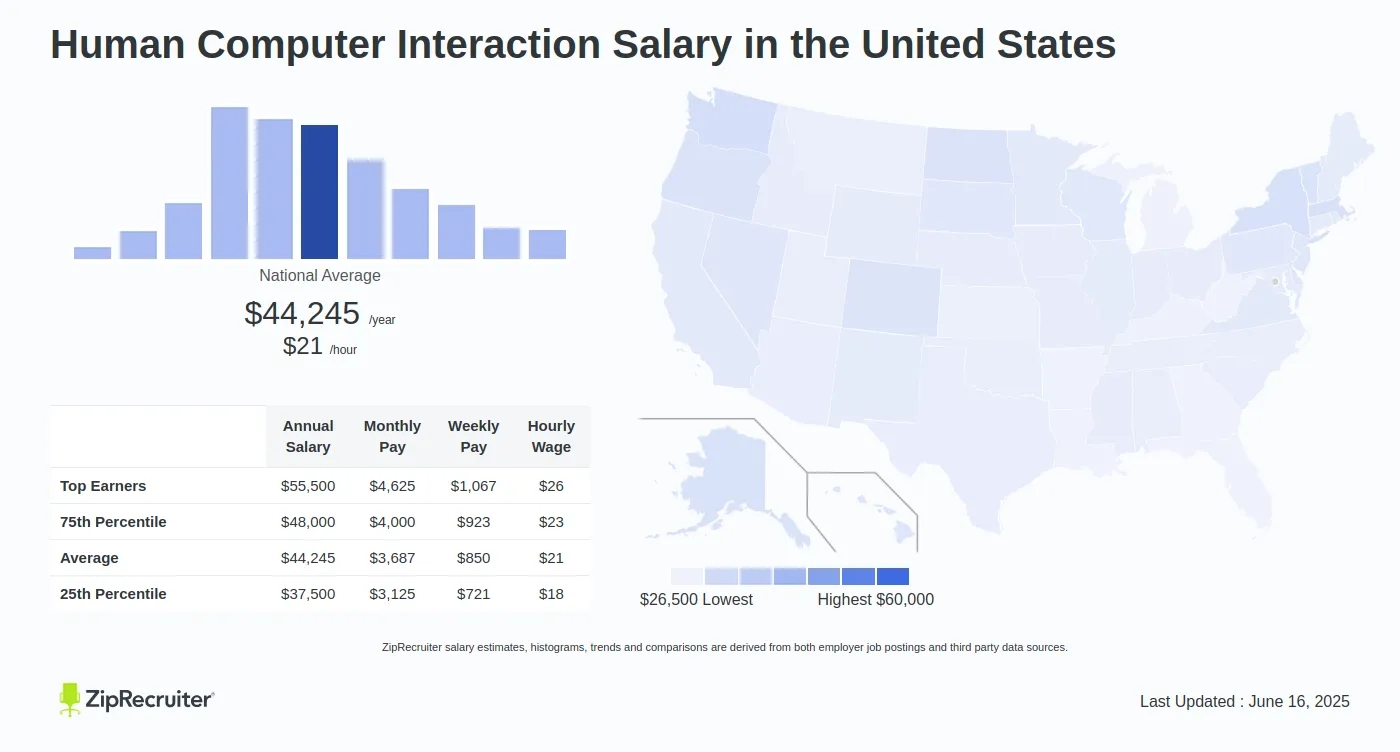
The demand for professionals skilled in Human-Computer Interaction (HCI) is surging, driving salaries to competitive levels across the tech industry. Entry-level positions can now command impressive figures, reflecting the crucial role HCI plays in product development and user experience.
This article provides a snapshot of the current HCI job market, focusing on salary ranges, key skills, and the factors influencing earning potential. The information provided here will equip aspiring and current HCI professionals with the knowledge needed to navigate this dynamic field.
HCI Job Market Overview
HCI specialists are responsible for designing user-friendly interfaces and experiences for software, websites, and other digital products. Their work bridges the gap between technology and human needs, making technology more accessible and enjoyable.
According to recent data from Glassdoor and Salary.com, the median salary for HCI professionals in the United States falls between $100,000 and $140,000 annually. However, this range varies significantly depending on experience, location, and the specific role.
Key Roles and Salary Ranges
Several distinct roles fall under the umbrella of HCI, each with its unique responsibilities and corresponding salary expectations. Here are a few examples, highlighting typical salary ranges based on experience levels:
User Experience (UX) Designer
UX Designers focus on the overall feel and usability of a product, ensuring a positive user experience. Entry-level UX Designers can expect salaries ranging from $70,000 to $90,000, while senior roles can easily exceed $150,000.
User Interface (UI) Designer
UI Designers are responsible for the visual design and interactive elements of a user interface. Salaries for UI Designers are generally comparable to those of UX Designers, with entry-level positions starting around $65,000 to $85,000 and senior roles reaching upwards of $140,000.
UX Researcher
UX Researchers conduct user research to understand user behaviors, needs, and motivations. The information they gather informs the design process. Starting salaries for UX Researchers typically range from $75,000 to $95,000, with experienced researchers earning over $160,000.
Interaction Designer
Interaction Designers focus on how users interact with a product, defining the flows and processes that guide the user experience. The median salary for Interaction Designers is approximately $120,000, with higher salaries in major tech hubs like San Francisco and New York.
Factors Influencing Salary
Several factors play a crucial role in determining the salary of an HCI professional. Experience is perhaps the most significant, with salary increasing substantially as professionals gain more years of relevant work.
Location also has a major impact. Cities with a high concentration of tech companies, such as San Francisco, Seattle, and New York City, generally offer higher salaries to compensate for the higher cost of living.
Education and specific skills are also important. A master's degree in HCI or a related field can increase earning potential. In-demand skills include proficiency in user research methodologies, wireframing, prototyping, and user testing.
Skills in High Demand
Staying current with the latest trends and technologies is essential for success in the HCI field. Companies are actively seeking candidates with the following skills:
- User Research (qualitative and quantitative)
- Wireframing and Prototyping
- Usability Testing
- Interaction Design
- Visual Design
- Data Analysis
- Accessibility (WCAG guidelines)
Employers often seek candidates who understand tools like Sketch, Figma, Adobe XD, and InVision.
Looking Ahead
The demand for HCI professionals is expected to continue growing in the coming years. As technology becomes more integrated into our lives, the need for user-centered design will only increase.
Candidates should continue to develop their skills, build a strong portfolio, and network within the HCI community. By staying proactive and informed, professionals can position themselves for success in this rewarding and impactful field.
Monitor job boards and industry reports for the latest salary trends and skill requirements. Continuous learning and adaptation are key to thriving in the evolving world of Human-Computer Interaction.
